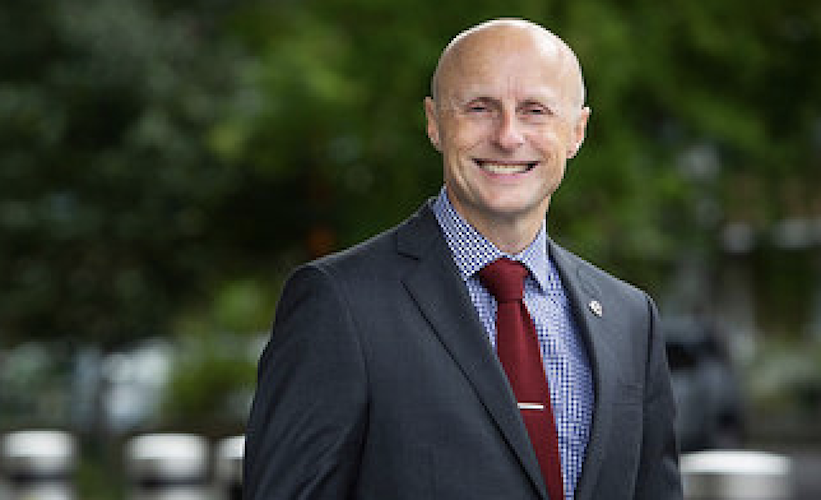News that Andy Byford is to step down as Transport for London commissioner at the end of next month has come as a shock, but maybe isn’t so surprising. Think back over what he’s had to deal with since taking full command in July 2020, then look ahead at what the months to come might hold, and a case for quitting while ahead begins to form.
Byford’s decision was not taken solely because of the demands of his position. He is a private citizen too and, as TfL has confirmed, wholly reasonable family considerations have been an important factor. I understand his wife has landed a big new job in the US. Byford will be moving back there, having previously been New York’s transit boss. Sky News reports that Byford told the Mayor “several months ago” that he would be going.
However, it has been a gruelling time at the top of TfL. In June, Byford told the board of London TravelWatch that the job of heading the capital’s transport authority was “the hardest I’ve ever done” because of the “never-ending, exhausting, frustrating negotiations with government over funding”.
Those negotiations, which spanned the pandemic and which Byford inherited from his predecessor Mike Brown, have defined his time in perhaps the biggest big city transit role in the world, eclipsing even the considerable feat of seeing the Elizabeth Line go smoothly into service.
The task of rebuilding TfL for the post-Covid era after the demands of lockdown wrecked its finances might have been an enticing challenge at the start. But how could the commissioner give it his full attention while constantly entangled in wrangles over money with a Boris Johnson administration convinced that it knew better than London’s Mayor how the capital’s transport networks should be run, a Department for Transport that is reputedly a mess, and a Treasury congenitally averse to devolution?
The full and gruesome story of how “Boris”, his courtiers and a centralising Whitehall machine colonised London government for its own controlling purposes when it should have been enabling it to get on with playing its vital part in national recovery has yet to be told (some other time, maybe).
Some believe Sadiq Khan could and should have been more pragmatic in his dealings with Johnson, going back to before Byford’s arrival, though others argue that the arrogance of his predecessor as Mayor and that of his transport appointees made political antagonism his least bad option. Whatever, Byford is already established as a dogged resistance hero of this parable of top-down dysfunction and spite.
His departure will be London’s loss. Significantly, given the fraught industrial relations climate, grown-up transport union leaders are sad to see him go. “He was seen as strongly committed to the organisation and was trusted by staff and unions,” says Finn Brennan, Aslef’s London district organiser.
Senior London politicians are sorry too. Sian Berry, the Green Party London Assembly member said, in her capacity as transport committee chair, that his tenure has not been very long, “but he has seen TfL through a difficult period when the pressure was intense”.
Liberal Democrat Caroline Pidgeon, a transport committee member and a former chair of it, has commented that Byford’s departure “shows the true cost of the non stop negotiations” with the government and reminds us that some of his most senior colleagues had already gone. Finance chief Simon Kilonback, deputy commissioner Gareth Powell and the long-serving Vernon Everitt, who played an important Covid recovery role, have led the TfL “brain drain”.
When considering the question of who will succeed Byford, it is tempting to ask another – who would want to? The outgoing commissioner finally nailed down a 20-month funding deal, but it has come with page upon page of conditions, and the next deal will have to be thought about before long. Anne-Marie Trevelyan, Liz Truss’s chosen successor to sneaky Grant Shapps as transport secretary, is an unknown quantity but her cv – big on Brexit, MP for Berwick-upon-Tweed – is hardly encouraging.
Still, being TfL commissioner remains a highly desirable prize. Chief operating officer Andy Lord, who is to step up as interim commissioner, is bound to be an early favourite. Byford has done a lot to sustain and stabilise TfL under onerous circumstances, but there are still plenty of leaves on the line.
On London strives to provide more of the kind of journalism the capital city needs. Become a supporter for just £5 a month. You will even get things for your money. Details here.


No real surprise to anybody at TFL. It had been speculated for months that once Crossrail was completed and a funding package agreed, then he would be off.
Another high profile departure though that will do nothing to halt either the talent drain that is gathering pace, or raise the generally poor morale of those still working there.
Tube ridership figures that seem to have plateaued at about 75-80% of pre COVID numbers, the ticking time bomb of paying for the Elizabeth Line, a dire general economic outlook, no big ticket projects in the pipeline, ongoing industrial relations problems and what is likely to be a highly contentious review of the pension scheme coming down the track, probably means that sticking around in the job and managing the organisation’s decline had very little appeal.
Whoever takes over from Mr Byford is going to have one hell of a job on their hands.
Don’t worry, Liz Truss loves London, bankers and borrowing money so she’ll probably give TfL all the money it wants. She’s a Tory Corbyn. Too bad about the pound or the cost of servicing British debt though. I guess we now have an experiment over what happens when govt borrows to fund growth.